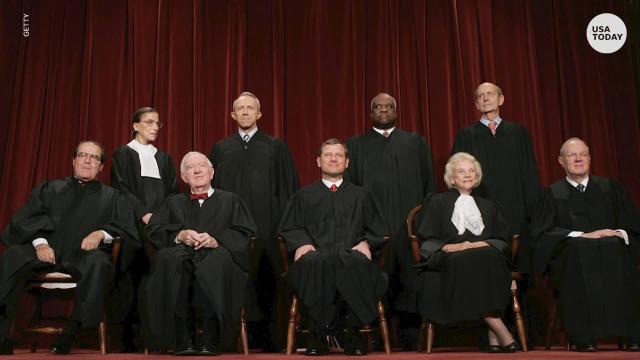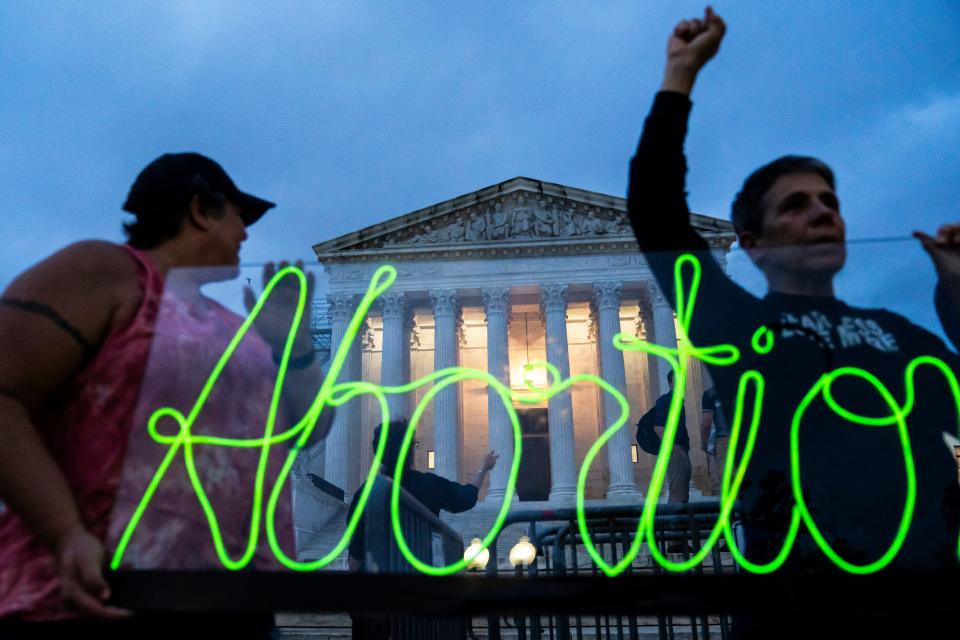Supreme Court allows Idaho's near-total abortion ban in emergency room in blow to Biden

WASHINGTON – The Supreme Court on Friday allowed Idaho to enforce its strict abortion ban in emergency rooms for now, rebuffing a Biden administration effort to ensure additional access to the procedure in red-state hospitals.
The court also agreed to hear arguments in the case this spring, placing a second major abortion case before the justices just over a year after the overturning of Roe v. Wade.
Idaho’s law makes it a crime for doctors to perform an abortion unless a physician can demonstrate that the mother's life is in danger. The Biden administration claimed a separate federal law requires emergency rooms to provide "stabilizing care," including abortions, for a broader range of circumstances, such as if a patient's health is in "serious jeopardy."
When the Supreme Court overturned Roe v. Wade last year, a significant part of the argument was that the issue should be returned to the states to decide. And while that has happened, many residual legal challenges over the procedure continue to percolate in federal courts.
More: Biden administration asks Supreme Court to keep abortion access in red-state emergency rooms
The Supreme Court has already agreed to hear a conservative appeal challenging the Food and Drug Administration’s decades-old approval of the abortion pill mifepristone.
At issue in this case is a federal law that requires hospitals that receive federal funding, such as through Medicare, to provide stabilizing treatment to patients even if they can’t afford to pay. The idea was to ensure hospitals would provide basic care to all patients.
After the Supreme Court’s decision to overturn Roe, the Biden administration said that the federal law requires hospitals to provide that same care to pregnant patients, including performing an abortion, if necessary, regardless of a state ban on the procedure.
Idaho officials said President Joe Biden was attempting to interpret the Medicare law into a "federal super-statute on the issue of abortion, one that strips Idaho of its sovereign interest in protecting innocent human life and turns emergency rooms into a federal enclave where state standards of care do not apply."
But the Justice Department said the guidance was simply clarifying existing federal law. That federal law, federal officials said, trumps state abortion bans that went into effect last year.

Women can experience severe medical conditions during pregnancy that would not be covered by exceptions for the life of a mother, including sepsis, uncontrollable bleeding, kidney failure, and loss of fertility.
Twenty conservative states, many with strict abortion bans, backed Idaho. But it's not only conservative states with strict bans where the Biden administration’s guidance would potentially have an impact.
Even states without strict abortion bans – or states with more expansive exceptions than Idaho’s – could be affected. For one thing, the federal law at issue applies to religiously affiliated hospitals that receive federal funding but decline to provide abortions even though their state law would otherwise allow them.
A federal appeals court in California sided with the Biden administration on a temporary basis earlier this month, blocking enforcement of the provisions of the Idaho law at issue.
This article originally appeared on USA TODAY: Supreme Court allows Idaho to enforce near-total abortion ban